Ph.D. in Nursing Classes and Requirements

博彩网站’s Ph.D. in Nursing prepares graduates to conduct original, groundbreaking research and pursue leadership roles in a variety of settings.
Quick links:
Ph.D. in Nursing curriculum
To earn a Ph.D. in Nursing from 博彩网站, you need:
- 57 credits from core courses
- A minimum of 27 dissertation credits
- 8 elective credits (if you have a master’s degree) or 20 elective credits (if you have a bachelor’s degree)
Sample classes and programs of study
Get a glimpse of the courses you’ll take in the program.
Ph.D. in Nursing Learning outcomes
When you graduate with a Ph.D. in Nursing, you’ll be able to:
- Appraise the philosophical underpinnings of science.
- Examine and synthesize existing knowledge and different scientific perspectives to advance nursing science.
- Design and conduct research to create new knowledge to advance nursing science.
- Apply professional and research ethics in the conduct of research.
- Demonstrate leadership skills to conduct culturally competent scholarship with interprofessional teams.
- Disseminate research findings to scientific, professional and lay audiences to influence nursing practice, policy and profession.
- Interpret the components of scholarship to research, teaching and services to advance nursing discipline.
- Demonstrate skills to educate and mentor the next generation of nursing scholars.
Ph.D. in Nursing application requirements
Before applying, students must have:
- Identified the area of research you're interested in and faculty members you want to work with. Review Ph.D. faculty to find a match.
- A B.S.N., M.S.N. or M.S. in a related field
- A GPA of 3.0 across all undergraduate and graduate courses
- A sample of scholarly work
How to apply
Applications are open until seats are filled. Follow these steps to apply:
- Go to Nursing CAS and apply.
- Enter your college courses in Nursing CAS.
- Submit 2 letters of reference, your resume or CV and sample of scholarly work* in Nursing CAS.
- Find a Ph.D. faculty match and enter it in Nursing CAS. For help connecting with faculty, email Rachel Rogers at rogersra@ohsu.edu.
- Send transcripts to Nursing CAS. Contact Nursing CAS to ensure your transcripts arrive.
* Your sample of scholarly work can be a published paper, thesis or research paper.
Get application details for international students and veterans.
Student research examples
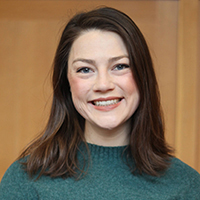
Kathryn McAuliffe, M.S.N.
- Research focus: sleep and shift work
- Former nurse and clinical researcher. Now a graduate researcher in Dr. Andrew McHill’s Sleep, Chronobiology and Health Laboratory.
Kylee Deterding, M.S.N.
- Research focus: system-level approaches to positively impact the nursing workforce. Explores trauma-informed approaches, critical theory and the mechanisms, structures and forces shaping the health care system.
- Former critical care nurse and a hospital manager. Specialized in pediatric and adult care.

Aaron Eisen, M.S.
- Research focus: childhood and adult stress, the health benefits of spending time in nature and nature-based interventions to reduce health disparities.
- Former senior research assistant and graduate teaching assistant at 博彩网站’s School of Nursing and School of Medicine.
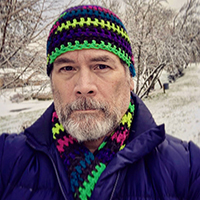
Christopher Kahle, M.A.
- Research focus: nursing philosophy, specifically civility and incivility in nursing education
- Member of Society for Simulation in Healthcare, the International Philosophy of Nursing Society and the Society for Simulation in Europe. Part of the inaugural Early-Stage Reviewer cohort for Nursing Philosophy.
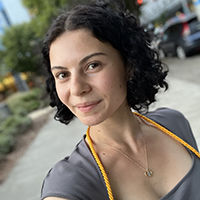
Sophia Kogan, B.S.N., RN
- Research focus: the influence of the circadian rhythms on pain, aiming to improve pain management interventions
- Works as a graduate researcher in Dr. Andrew McHill’s Sleep, Chronobiology and Health Laboratory.
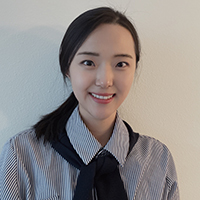
Ki Rog Lee, M.S.N., RN
- Research focus: nursing education, end-of-life care, and nursing work environments. Develops educational programs to improve nurses' skills in end-of-life care.
- Worked as an oncologic emergency nurse and in nursing administration. Played a role in passing South Korea’s Nursing Law. Previous research focused on infection control nursing and emergency nursing during the COVID-19 pandemic.
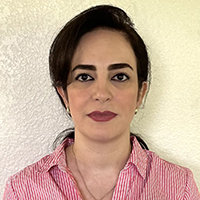
Sayeh Moosavi, M.S.
- Research focus: postpartum depression among underserved and underrepresented immigrant women
- Former nurse-midwife with research interests in maternal mental health

Zijiao Wang, M.S.N.
- Research focus: evidence-based strategies to improve patient outcomes and cardiovascular health. Studies the impact of psychological barriers, such as fear of exercise, on cardiovascular patients.
- Past research included developing interventions to help patients overcome anxiety and adopt healthier lifestyles.
Ph.D. in Nursing faculty
博彩网站’s Ph.D. in Nursing faculty are experts in their field and deeply dedicated to mentoring you. Explore their bios to learn about their areas of research or view research interests of other faculty members that may be a match.
Program leaders
Ph.D. in Nursing faculty
Ph.D. in Nursing class descriptions
NURS 601: Research Practicum
2 credits. The research practicum provides the doctoral student with an opportunity to work with a faculty mentor on some aspect of the faculty member’s research related to nursing science. This course may be repeated for credit.
NURS 609: Practicum in Teaching
2 credits. This course provides students with the opportunity to design, implement and evaluate a variety of learning experiences appropriate to the course environment and outcomes expected of the designated learners. Opportunity to use several different teaching modalities will be provided, including classroom, seminar, clinical, laboratory and online.
NURS 613: Research Design & Methods
3 credits. This course focuses on issues related to research design and sampling methods. Students will learn how to select research designs and sampling methods based on research questions and/or hypotheses, conceptual frameworks/theories and philosophical assumptions. Specific content will address methodological rigor and ethical concerns.
NURS 614: Philosophical and Theoretical Foundations for Health Science Research
3 credits. This course focuses on the philosophical and theoretical foundations for health science research. Students will discuss a diverse array of philosophies that have informed scientific inquiry. The course will also introduce students to conceptual and theoretical perspectives that frame health science research, with particular attention to middle-range theories. The philosophical underpinnings of selected theories will be explored and their implications for research examined.
NURS 620: Responsible Conduct of Research and Scholarship
2 credits. This course focuses on review and discussion of various aspects of Responsible Conduct of Research and Scholarship (RCRS). Students will learn to conduct quality research as the foundation for a strong professional reputation as a researcher. RCRS involves the awareness and application of established professional norms and ethical principles in the performance of all activities related to scientific research.
NURS 630: Advanced Measurement
3 credits. This course focuses on advanced measurement. Students will learn theories and psychometric assumptions integral to selecting and developing measures. Students will acquire in-depth understanding of common approaches to reliability including Classical Test Theory, Generalizability Theory, and Item Response Theory, and the applicability of each to measurement in health research. Students will develop skills in evaluating items, examining and interpreting reliability, and selecting approaches to establish validity, including content, criterion-related, and construct validity. This course also will cover exploratory and confirmatory factor analysis and multi-trait/multi-method matrix approaches to validity testing.
NURS 632: Mixed Methods Research
3 credits. This course focuses on different strategies used in inquiry that employ quantitative research, qualitative research and the intentional integration thereof. Specific emphasis is placed on identifying and bridging diverse philosophical positions that often underlie mixed methods research and on data integration as a means to maximize the strengths of the qualitative and quantitative approaches and minimize their weaknesses. The importance of varied methodological and disciplinary expertise to the success of mixed methods teams will also be explored.
NURS 633: Pro-seminar
6 credits. This pro-seminar focuses on introduction and exposure of students to active programs of research within the school and across 博彩网站 in the areas of 1) Integrative Biobehavioral Research and 2) Health Equity Research. Students will learn about the breadth of ongoing interprofessional/team science in these areas through faculty presentations, assigned articles and informal, facilitated discussions.
NURS 635: Literature Review, Synthesis and Inquiry
2 credits. This course focuses on skill development for conducting a literature review and synthesis, then using this synthesis to support the formulation of questions for future research. These skills are foundational for the research process, including writing successful grant applications and publications. Students will expand their knowledge and expertise in the literature of their areas of interest and describe a) the current state of the science and b) gaps in knowledge that should be addressed to inform research questions that will importantly advance science within the student’s area of interest.
NURS 636: Inquiry and Proposal Development
2 credits. This course focuses on initial development of a research proposal through the integration of knowledge in theories, methodologies and literature. Students will gain skills in reviewing/critiquing grant proposals and learn an overview of funding mechanisms and the funding process.
NURS 641: Applied Health Statistics I: Descriptive, Associative and Comparative Statistics
4 credits. This first course in a 3-course series focuses on a conceptual understanding of analysis and interpretation of descriptive and inferential statistics. Students will develop skills in the performance and interpretation of common statistical tests, including tests of central tendency and dispersion, correlations, chi-square tests, t-tests and analysis of variance, and develop an understanding of when particular tests should be employed. This course will also cover sample size estimation/power calculation procedures for common hypothesis testing. Applying health statistics as part of a logical argument is emphasized as opposed to detailed knowledge of the underlying mathematics.
NURS 642: Applied Health Statistics II: Generalized Linear Modeling
3 credits. This second course in a 3-course series focuses on conceptual understanding of generalized linear modeling. Students will develop skills in the performance and interpretation of techniques such as multivariate linear, logistic, gamma and negative binomial regression, and develop an understanding of when particular approaches should be employed. This course also will cover common functions within generalized linear modeling such as tests of interaction, moderator and mediator, as well as multilevel modeling, handling of complex sampling designs and common approaches to model selection. Applying health statistics as part of a logical argument is emphasized in this course as opposed to detailed knowledge of the underlying mathematics.
NURS 643: Applied Health Statistics III: Longitudinal Design and Analysis
3 credits. In this advanced course on applied health statistics, students will develop a conceptual understanding of common design issues in longitudinal research and the classic and emerging approaches to the analysis of longitudinal data. Students will develop skills in the performance and interpretation of techniques such as multilevel, mixture, growth, estimation and survival modeling, and develop an understanding of when particular approaches should be employed. This course will also cover handling of common longitudinal data issues such as dropout, missing data and time-dependent confounding.
NURS 644: Qualitative Research I
3 credits. This course focuses on qualitative research methodologies. Students will develop conceptual understanding of various qualitative research methods and basics of data collection, analysis and interpretation of qualitative data in health science research. Students also gain practical knowledge and skills for conducting qualitative research congruent with the philosophical assumptions underlying the research methodology. Methodological rigor and ethical concerns particular to qualitative methods will also be discussed.
NURS 645: Qualitative Research II
4 credits. This second course in a 2-course series focuses on a comprehensive examination of qualitative research methods. Students will develop in-depth understanding and advanced skills to design and conduct rigorous qualitative research. Students also will have opportunities to explore various tools that are supportive to qualitative data collection and analysis such as qualitative data analysis software. Emphasis is placed on approaches and considerations unique to qualitative research methodologies used in nursing and other health sciences.
NURS 671: Introduction to Health Equity Research
3 credits. In this introductory course on inquiry related to the full scope of human responses to illness and intervention based on the interrelationships of psychosocial, behavioral and biological processes, students will learn about common approaches to biobehavioral research including multidisciplinary research on physical activity and nutrition, physical functioning, symptoms, biomarkers and palliative care within individuals and families. Emphasis will be placed on unique philosophical/theoretical underpinnings, practical approaches and policy implications related to integrative biobehavioral research.
NURS 672A: Applied Health Equity Research
3 credits. This course focuses on advanced theoretical and practical knowledge and content expertise necessary for the conduct of health equity research. Students will gain in-depth exposure to a variety of elements required to carry out health equity research including advanced application of health equity theory, community participation, study design, data collection and analysis, and disseminating findings to multiple stakeholders including the community and policy makers. Students are expected to gain breadth of knowledge related to published research in a substantive research area. Emphasis also will be placed on developing leadership in interdisciplinary/ team science.
NURS 672B: Applied Health Equity Research
3 credits. This final course in applied health equity research integrates content across the series. Students will demonstrate their breadth of knowledge by preparing a research proposal and will be exposed to a variety of strategies for disseminating research findings to multiple stakeholders. Emphasis also will be placed on developing leadership in interdisciplinary/team science.
NURS 673: Introduction to Integrative Biobehavioral Research
3 credits. In this introductory course on inquiry related to the full scope of human responses to illness and intervention based on the interrelationships of psychosocial, behavioral and biological processes, students will learn about common approaches to biobehavioral research including multidisciplinary research on physical activity and nutrition, physical functioning, symptoms, biomarkers and palliative care within individuals and families. Emphasis will be placed on unique philosophical/theoretical underpinnings, practical approaches and policy implications related to integrative biobehavioral research.
NURS 674A: Applied Integrative Biobehavioral Research
3 credits. This first course in a 2-course series builds upon content introduced in NURS 673 and focuses on advanced theoretical and practical knowledge and content expertise necessary for the conduct of integrative biobehavioral research. Students will gain in-depth exposure to a variety of elements required to carry out biobehavioral research including advanced application of behavioral and biological theories, study design and biological and behavioral data collection and integration. Students are expected to gain breadth of knowledge related to published research in a substantive research area. Emphasis will also be placed on identifying core elements of strong interdisciplinary/team science.
NURS 674B: Applied Integrative Biobehavioral Research
3 credits. This final course in applied integrative biobehavioral research integrates content across the series. Students will demonstrate their breadth of knowledge by preparing a research proposal and will be exposed to a variety of strategies for disseminating research findings to multiple stakeholders. Emphasis also will be placed on developing leadership in interdisciplinary/team science.
NURS 675: Policy and Leadership
3 credits. This course focuses on the concepts of leadership and followership in the conduct of research. Students will understand the evolving roles and responsibilities of a scholar in relationship to influencing policy at institutional and governmental levels based on knowledge of the relevant evidence.
NURS 603: Doctoral Dissertation
24 credits. The development and conduct of dissertation research.
NURS 607D: Dissertation Seminar
3 credits. This seminar focuses on supporting and facilitating student progress through the stages of dissertation work. Students, doctoral candidates who have successfully completed the first two years of the program, will be involved in a forum for scholarly exchange and learning regarding the completion of the dissertation, manuscript preparation and dissemination and professional development in preparation for a postdoctoral or faculty role. The seminar will complement the student-chair relationship.
Nursing scholarships
博彩网站 offers more nursing scholarships than ever before. See if you qualify.
Contact us
- Ask admissions
- Attend an information session
- Call us at 503-494-7725 or 866-223-1811 (toll free)
Accelerated B.S. to Ph.D. pathway
If you’re pursuing a B.S. in nursing and want a direct path to a Ph.D., you can apply to the accelerated B.S. and Ph.D. programs in one application. This lets you transition directly into the Ph.D. program after earning your B.S.

Accreditation
博彩网站 is accredited by the NWCCU and 博彩网站 School of Nursing is accredited by the CCNE.